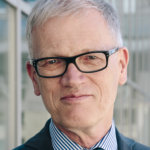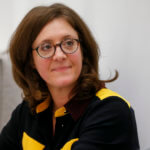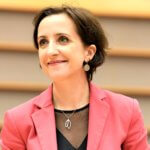Online, 16 June 2020
Minding the gap - higher education, research and innovation in international cooperation
Theme
Programme
16 June 2020
Webinar
10:00 – 12:15
| 10:00 | Welcome & introduction of ACA reflection paper Ulrich Grothus, ACA President |
| 10:10 | Moderator – Irina Ferencz, Deputy Director, ACA How to bring research to students and students to research? Christian Schäfer, Head of Unit Research and Studies, German Academic Exchange Service, DAAD, Germany Stephane Faignet, Team Lead Department Support Enterprises and Program Coordinator Collective Research Projects at VLAIO, Flanders Agency for Innovation and Entrepreneurship, Belgium Sabine Menu, European university EPICUR, Liaison Officer, Belgium |
| 10:55 | Virtual coffee break |
| 11:05 | Higher education, research and innovation – joint programming and outreach Torill Iversen Wanvik, Senior Adviser, Norwegian Agency for International Cooperation and Quality Enhancement in Higher Education, Diku, Norway Karla Zimanova, Deputy Director, Slovak Academic Information Agency, SAIA, Slovakia Fernando Galàn, Cosortium Manager, Arqus European University Alliance |
| 11:50 | The European Union’s approach to minding the education, research and innovation gap Vanessa Debiais-Sainton, Head of Unit, Higher Education, Directorate General for Education and Culture, European Commission Apostolia Karamali, Head of Unit, Academic R&I and Research Organisations, Directorate General for Research and Innovation, European Commission |
| 12:25 – 12:30 | Wrap-up and goodbye Ulrich Grothus, ACA President |
Speakers
Ulrich Grothus

Ulrich Grothus is president of ACA. Before his retirement in July 2018, he was Deputy Secretary-General and head of the Berlin office of the German Academic Exchange Service (DAAD). He obtained a master’s degree in Political Science at the Freie Universität Berlin in 1976. He then worked as a journalist before joining the International Division of the former West German Rectors Conference in 1982. He worked for DAAD from 1988 through 2018, first as spokesman and head of the president’s office. From 1991, he was consecutively director of all three DAAD program directorates, for the Southern and Northern hemisphere and for supra regional internationalization programs. In between, he served as director of the Paris office from 1998 to 2000 and of the New York office from 2004 to 2008. Grothus speaks five foreign languages and has given three others a try.
Irina Ferencz
 Irina Ferencz (née Lungu) works for the Brussels-based Academic Cooperation Association (ACA) since 2008, currently as Deputy Director, having served in various roles previously. Through her research, publications and project management at ACA, Irina has developed a specific interest and expertise in the area of international student and staff mobility in the European context (data collections, trends, policies), as well as in planning, monitoring and assessing internationalisation activities at institutional and national level (strategic development and enhancement, KPIs, benchmarking, etc.). Currently, she is also: a PhD candidate at Ghent University, Center for Higher Education Governance Ghent (CHEGG), researching internationalisation and organisational identity in higher education; an occasional reviewer for two higher education journals; and a member of the Publications Committee of the European Association for International Education (EAIE). Irina holds an MSc degree in European Politics and Policies (KU Leuven, Belgium) and a Bachelor’s degree in International Relations and European Studies (Universitatea Babeş-Bolyai, Romania). She is a Romanian national, speaks several languages, including ‘Larish’ (a language of the under-two-year-olds), and calls Belgium ‘home’.
Irina Ferencz (née Lungu) works for the Brussels-based Academic Cooperation Association (ACA) since 2008, currently as Deputy Director, having served in various roles previously. Through her research, publications and project management at ACA, Irina has developed a specific interest and expertise in the area of international student and staff mobility in the European context (data collections, trends, policies), as well as in planning, monitoring and assessing internationalisation activities at institutional and national level (strategic development and enhancement, KPIs, benchmarking, etc.). Currently, she is also: a PhD candidate at Ghent University, Center for Higher Education Governance Ghent (CHEGG), researching internationalisation and organisational identity in higher education; an occasional reviewer for two higher education journals; and a member of the Publications Committee of the European Association for International Education (EAIE). Irina holds an MSc degree in European Politics and Policies (KU Leuven, Belgium) and a Bachelor’s degree in International Relations and European Studies (Universitatea Babeş-Bolyai, Romania). She is a Romanian national, speaks several languages, including ‘Larish’ (a language of the under-two-year-olds), and calls Belgium ‘home’.
Christian Schäfer
 1977-1987 Studies of Biology in Frankfurt (Mail) and Darmstadt, Germany (1987: Dr rer. nat.)
1977-1987 Studies of Biology in Frankfurt (Mail) and Darmstadt, Germany (1987: Dr rer. nat.)
1987-1988 Postdoc, Carnegie Institution of Washington, Stanford, USA
1988-1998 Assistant Professor, University of Bayreuth
1999-2000 Stiftung Jugend forscht, Hamburg, Germany
2001- present: DAAD as Head of Section with different Responsibilities (North America, Internationalisation of Research, Research and Studies).
Stephane Faignet
 Flanders Innovation & Entrepreneurship (in Dutch: Agentschap Innoveren & Ondernemen) is a Flemish government agency in Belgium, charged with implementing the economic and enterprise policy in Flanders.
Flanders Innovation & Entrepreneurship (in Dutch: Agentschap Innoveren & Ondernemen) is a Flemish government agency in Belgium, charged with implementing the economic and enterprise policy in Flanders.
Our department Support Enterprises is funding research and development projects of Flemish companies and research organizations.
I’m currently a team leader in the Department Support Enterprises, a program coordinator for collective research projects and a scientific advisor for the evaluation of R&D proposals in the field of architecture, civil engineering and material science. The last three years I was also responsible for the TETRA-program. I’m also a board observer for the Belgian Road Research Centre (BRRC) and the Belgian Building Research Institute (BBRI).
I graduated as a civil engineer architect at the VUB, Free University Brussels. My PhD was on “Mineral Polymer Tooling System for Making Prototype fibre Reinforced Composite Parts”. During my PhD I was a research assistant and for three years a post doc assistant, at the department of civil engineering at the VUB, before starting my current job some 22 years ago.
Sabine Menu
 Since 2012, Sabine Menu has been Associate professor at EM Strasbourg business school, a component of the University of Strasbourg located in a multilingual cross-border environment. She has been actively involved in the internationalisation strategy of the business school, developing academic partnerships in the Benelux, central Europe, Italy and Australia. She holds a PhD in political science (Sciences Po Paris) and teaches bachelor and master’s students on the functioning of the European union and related market issues. She lives in Brussels and is the new EPICUR liaison officer (European Partnership for an Innovative Campus Unifying Regions). The EPICUR Alliance, winner of the call for European University pilot projects launched by the European Commission under the Erasmus+ programme, is committed to building a project deeply rooted in the values of a Europe of knowledge across borders.
Since 2012, Sabine Menu has been Associate professor at EM Strasbourg business school, a component of the University of Strasbourg located in a multilingual cross-border environment. She has been actively involved in the internationalisation strategy of the business school, developing academic partnerships in the Benelux, central Europe, Italy and Australia. She holds a PhD in political science (Sciences Po Paris) and teaches bachelor and master’s students on the functioning of the European union and related market issues. She lives in Brussels and is the new EPICUR liaison officer (European Partnership for an Innovative Campus Unifying Regions). The EPICUR Alliance, winner of the call for European University pilot projects launched by the European Commission under the Erasmus+ programme, is committed to building a project deeply rooted in the values of a Europe of knowledge across borders.
Torill Iversen Wanvik
 Torill Iversen Wanvik has been working as a Senior Adviser at Diku- “Norwegian Agency for International Cooperation and Quality Enhancement in Higher Education” (previously SIU) since September 2013. She is associated with the “Section for Higher Education and Research”. Before coming to Diku Wanvik was employed at the Norwegian Ministry of Foreign Affairs and was posted in Indonesia in the period from 2011 to 2013. She has also worked as a senior consultant at Deloitte AS with compliance auditing.
Torill Iversen Wanvik has been working as a Senior Adviser at Diku- “Norwegian Agency for International Cooperation and Quality Enhancement in Higher Education” (previously SIU) since September 2013. She is associated with the “Section for Higher Education and Research”. Before coming to Diku Wanvik was employed at the Norwegian Ministry of Foreign Affairs and was posted in Indonesia in the period from 2011 to 2013. She has also worked as a senior consultant at Deloitte AS with compliance auditing.
Wanvik is a political scientist by education graduating from the University of Bergen with French and Political philosophy from Nanterre University in France as integrated components.
Karla Zimanova
 Karla Zimanova, PhD., SAIA, n. o. Deputy Director as of 2009, joined SAIA in 2005. Since 2005 she has been a project manager, desk officer and portal content manager of EURAXESS Slovakia. She also was a project manager responsible for Scholarship programme area of EEA and Norway grants in SAIA. She has been active in collaboration with various national stakeholders, she has prepared and collaborated on several SAIA publications and participated in the official legislation commenting especially with respect to entry and residence conditions for researchers and their families. She was a member of the expert group preparing the Operational programme Research and Innovation. She has participated in several EU funded projects focused on researchers mobility obstacles and researchers’ career development.
Karla Zimanova, PhD., SAIA, n. o. Deputy Director as of 2009, joined SAIA in 2005. Since 2005 she has been a project manager, desk officer and portal content manager of EURAXESS Slovakia. She also was a project manager responsible for Scholarship programme area of EEA and Norway grants in SAIA. She has been active in collaboration with various national stakeholders, she has prepared and collaborated on several SAIA publications and participated in the official legislation commenting especially with respect to entry and residence conditions for researchers and their families. She was a member of the expert group preparing the Operational programme Research and Innovation. She has participated in several EU funded projects focused on researchers mobility obstacles and researchers’ career development.
Fernando Galán
 Fernando Galán is the Cosortium Manager at Arqus European University Alliance and has over 5 years’ experience working on European higher education policies. Before joining Arqus, Fernando was head of international engagement at Crue Universidades Españolas, the Spanish rectors’ conference. He has also worked as policy and project officer at EURASHE, the European Association of Higher Education Institutions offering professional oriented programmes, and as President of the European Students’ Association (ESU), being responsible for the coordination of its policy work. Fernando has been a member of the governing bodies of the European Higher Education Area / Bologna Process, and of different expert groups from the European Union, the Council of Europe, UNESCO and the OECD, among others. In these roles, he has contributed to relevant documents at European level in the field of higher education, such as the Ministerial Communiqués of Bucharest (2013) and Yerevan (2015), the European Standards and Guidelines for Quality Assurance in the Higher Education Area (ESG 2015), several EU initiatives, such as U-Multirank, and the work of UNESCO and the Council of Europe on the recognition of qualifications. In Spain, Fernando has collaborated with the Agencia Nacional de Evaluación de la Calidad y Acreditación (ANECA) and other regional agencies on numerous occasions, as well as with the UNESCO Chair in University Management and Policy at the Polytechnic University of Madrid and the INCREA Chair in Innovation, Creativity and Learning at the Jaume I University. In addition, Fernando has participated as a speaker at several prestigious institutions (e.g. Harvard University), published several articles and collaborated in several books on European higher education policies.
Fernando Galán is the Cosortium Manager at Arqus European University Alliance and has over 5 years’ experience working on European higher education policies. Before joining Arqus, Fernando was head of international engagement at Crue Universidades Españolas, the Spanish rectors’ conference. He has also worked as policy and project officer at EURASHE, the European Association of Higher Education Institutions offering professional oriented programmes, and as President of the European Students’ Association (ESU), being responsible for the coordination of its policy work. Fernando has been a member of the governing bodies of the European Higher Education Area / Bologna Process, and of different expert groups from the European Union, the Council of Europe, UNESCO and the OECD, among others. In these roles, he has contributed to relevant documents at European level in the field of higher education, such as the Ministerial Communiqués of Bucharest (2013) and Yerevan (2015), the European Standards and Guidelines for Quality Assurance in the Higher Education Area (ESG 2015), several EU initiatives, such as U-Multirank, and the work of UNESCO and the Council of Europe on the recognition of qualifications. In Spain, Fernando has collaborated with the Agencia Nacional de Evaluación de la Calidad y Acreditación (ANECA) and other regional agencies on numerous occasions, as well as with the UNESCO Chair in University Management and Policy at the Polytechnic University of Madrid and the INCREA Chair in Innovation, Creativity and Learning at the Jaume I University. In addition, Fernando has participated as a speaker at several prestigious institutions (e.g. Harvard University), published several articles and collaborated in several books on European higher education policies.
Vanessa Debiais-Sainton
 Vanessa Debiais-Sainton is Head of the Unit in charge of Higher Education policies and programme at the European Commission’s Directorate General for Education, Youth, Sport and Culture. The unit is the lead service for European policies on reform and modernisation of higher education, the new European Universities initiative, automatic mutual recognition of higher education qualifications, the EU student card initiative, and the higher education strand of Erasmus+. In previous posts in the European Commission, Vanessa has worked in DG Research and Innovation. Before moving to the European Commission in 2006, Vanessa spent eight years working for several petroleum and chemical companies.
Vanessa Debiais-Sainton is Head of the Unit in charge of Higher Education policies and programme at the European Commission’s Directorate General for Education, Youth, Sport and Culture. The unit is the lead service for European policies on reform and modernisation of higher education, the new European Universities initiative, automatic mutual recognition of higher education qualifications, the EU student card initiative, and the higher education strand of Erasmus+. In previous posts in the European Commission, Vanessa has worked in DG Research and Innovation. Before moving to the European Commission in 2006, Vanessa spent eight years working for several petroleum and chemical companies.
Apostolia Karamali
 Apostolia Karamali is Head of the Academic R&I and Research Organisations Unit at the Directorate-General for Research and Innovation of the European Commission. The unit designs, implements, and monitors policy initiatives in support of higher education institutions, research organisations and researchers, as part of the European Research Area (ERA), and empowers them to deliver the transformative and systemic changes that boost the long-term competitiveness, attractiveness, and impact of Europe’s R&I system. With a background in Earth Sciences and Remote Sensing and more than twenty years of experience in EU institutions, Ms. Karamali has worked extensively in the areas of space and research policies and associated programmes most recently as Deputy Head of Unit for Space Policy and Research at DG for Internal Market, Industry, Entrepreneurship and SMEs.
Apostolia Karamali is Head of the Academic R&I and Research Organisations Unit at the Directorate-General for Research and Innovation of the European Commission. The unit designs, implements, and monitors policy initiatives in support of higher education institutions, research organisations and researchers, as part of the European Research Area (ERA), and empowers them to deliver the transformative and systemic changes that boost the long-term competitiveness, attractiveness, and impact of Europe’s R&I system. With a background in Earth Sciences and Remote Sensing and more than twenty years of experience in EU institutions, Ms. Karamali has worked extensively in the areas of space and research policies and associated programmes most recently as Deputy Head of Unit for Space Policy and Research at DG for Internal Market, Industry, Entrepreneurship and SMEs.

